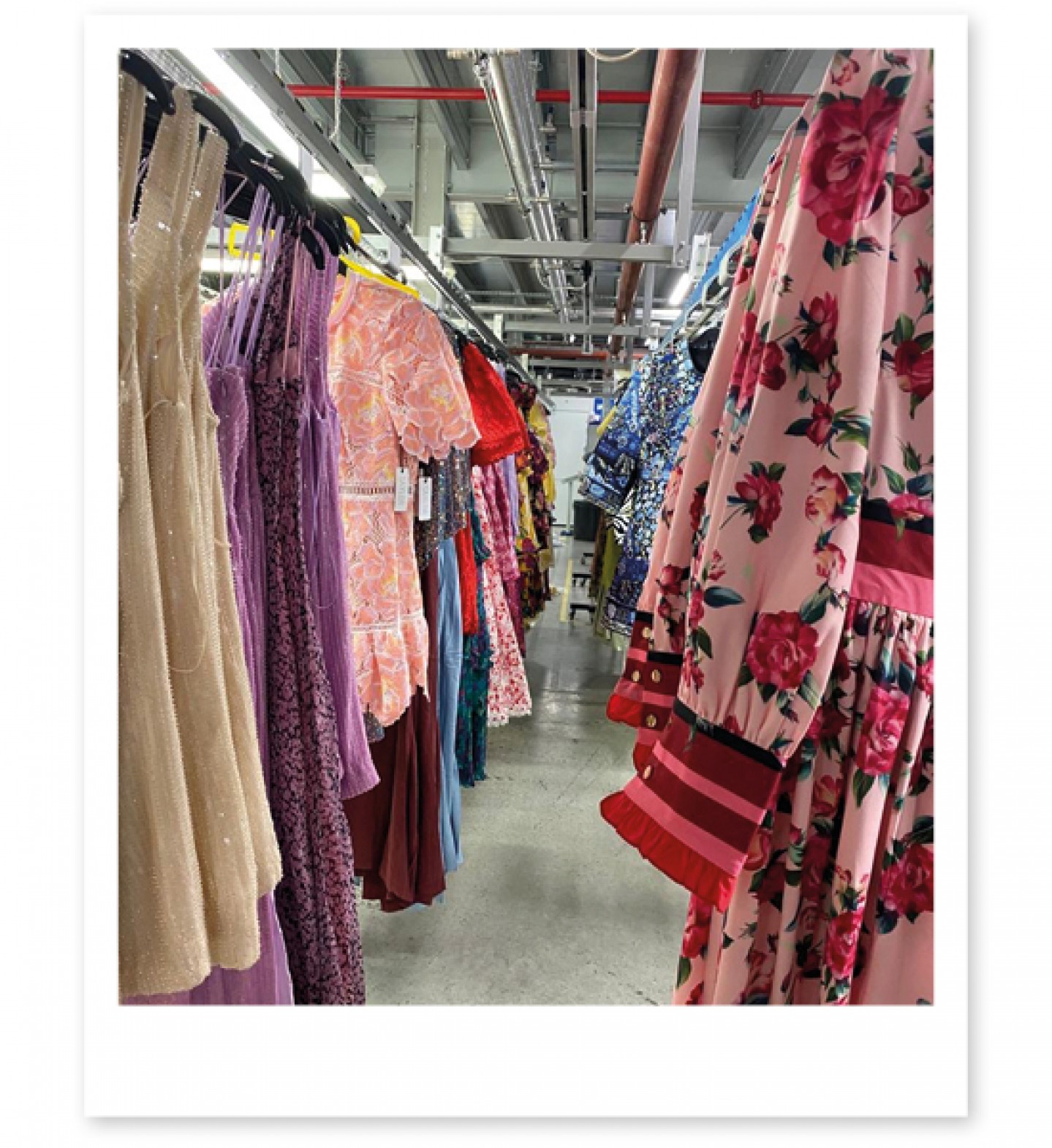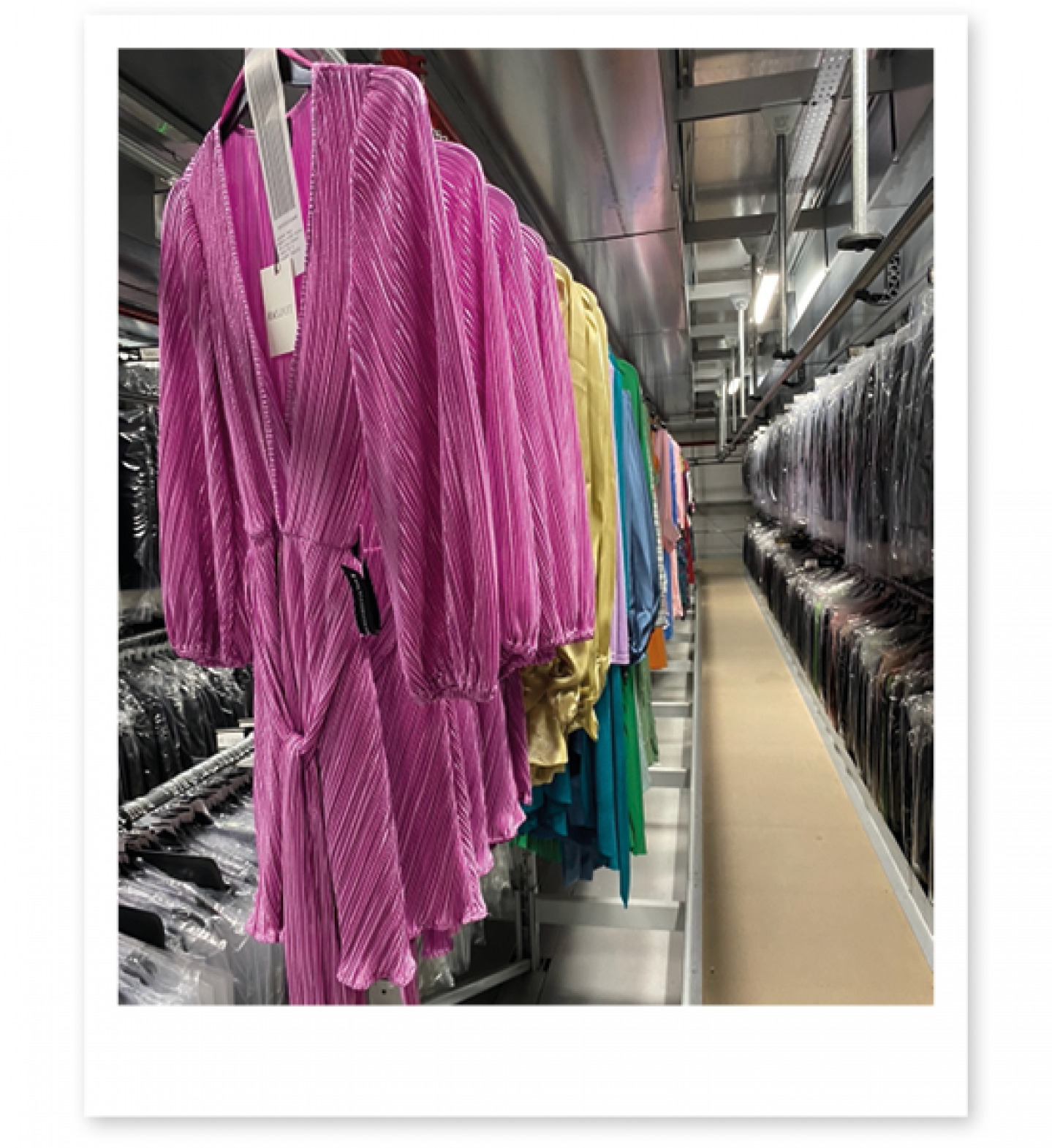Meet the Owner of Newcastle-Based Fashion Rental Business Hirestreet

Changes within the fashion industry are growing in pace
What makes fashion such a polluting industry?
Fashion is responsible for eight percent of global carbon emissions, but in my opinion the biggest issue with the fashion industry is the waste. There is waste at every stage of the current linear model of consumption, from the very beginning with activities like material dying, to the final retailed items being worn once or twice before being dumped in landfill.
Why is sustainability in fashion so important?
Sustainability is important in every industry. In 2023 we will hit Earth Overshoot Day on 13th May (this day marks the date when demand for resources and services in a given year exceeds what earth can regenerate in that year). It’s clear consumer behaviour has to change, because we are quite literally living in a way that we can’t sustain. We are just at the start of this process of change and fashion is the area we specialise in, but we are building a solution that is much bigger than that - it will enable access over ownership for all items in life.
How has the fashion industry changed and how does your business reflect that?
The way the world consumes is changing; from music to cars, the items that you used to want to own, you now access on a temporary basis to suit your evolving tastes and needs. The same consumption shift that we have seen in other industries is happening right now in fashion. Our rental technology solution Zoa is driving that shift by enabling retailers to easily offer consumers pay-per-wear fashion.


Hirestreet focuses on making fashion sustainable through rental – tell us more about that.
We launched Hirestreet in 2018 to provide a sustainable, affordable alternative to buying fast fashion. Instead of buying an outfit and wearing it once, our customers pay 20 percent of RRP to hire an outfit for four days and then send it back. Hirestreet aims to get 30 wears out of every single item we have in stock – not only does this help keep worn-once items out of landfill, it is also the most effective way of reducing the carbon emissions associated with wearing a dress.
Why is rental so effective at reducing carbon emissions?
Between 70–90 percent of a product’s carbon footprint happens during the production phase. If items are then only used once or twice before being discarded into landfill, there is a huge disconnect between the resources that have gone into creating that garment, and that garment’s potential useful life. The best way to reduce the carbon impact of an item is to increase its usage. That is exactly what rental does.
What are some other ways people can make their wardrobe more sustainable?
If you have to buy, buy investment pieces. Ask yourself, will I wear this 30 times? Create WhatsApp groups with friends and ask to borrow items if you have an event and post pictures of items you don’t wear any more to see if you can find them a happy home. Don’t buy items with the intention of returning them – it is often very difficult if not impossible for retailers to process and re-sell returned items. Do the one-in-one- out rule. Only buy something new if you donate one of your previously loved items to a friend or to charity – that way you won’t find yourself with an ever-increasing wardrobe of hardly-worn items.
‘The same consumption shift that we have seen in other industries is happening right now in fashion’
In your eyes what should the future of fashion be, and what needs to happen to get there?
I think the future of ownership in general will be far more fluid than it is in 2023. For fashion, I would like to see a future which enables consumers to access items on a temporary basis, meaning that they can have a wardrobe that evolves with them (and their life), without being forced to own things.
The easiest way to see this is with a summer holiday wardrobe, many of us store holiday clothes in a drawer, or under the bed and get them out for a couple of weeks a year. But, the reality is, a year later we may not still love those items, or we may be going to a different kind of holiday destination so we end up buying more. This also means when we are shopping we make compromises, we try and choose garments that we feel can work for multiple moments instead of having full fashion freedom.
Rental is the perfect answer. For your holiday this year, you can hire seven outfits, feel and look amazing while you are away in your perfectly-curated wardrobe, and then send them all back once you are home. You can then have seven totally different items for the next time you go away. Holidays are just one good example, rental is already disrupting many traditional categories outside occasion wear including maternity wear, work-wear and ski-wear.
If you could give people one reason to change their shopping habits what would it be?
There is no downside to renting. By sharing both the financial and the environmental cost of a garment with 29 other people you can wear more, but waste less.










